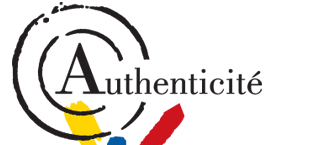 Valuation of a neay pair of wrought iron consoles in our next auction
Valuation of a neay pair of wrought iron consoles in our next auctionLe Floc'h auction house in Saint-Cloud, in collaboration with our experts specialized in free valuation and free appraisal will auction a near pair of French 20th century wrought iron consoles, Sunday 24th of November in Saint-Cloud.










Our teams in London and Paris are available to meet your needs whether you want to buy, sell or know the value of your works of art.
News releases

The 2014 French budget, passed few days ago, made no concessions to art and the art market.
Here is an overview of taxation that awaits you whether it is sales, capital gains or inheritance.
Capital gains
If at time of purchase, works of art are not subject to any tax; profit at resale will support capital gain tax. In its wisdom the legislator provides the amateurs and collectors two options, you are free to choose the most favorable.
-the gain may be taxed at a flat rate especially in the absence of proof of purchase. In this case, a tax of 6.5% applies to the selling price in excess of 5,000 euros (5% until 31 December 2013).
-if the seller has an invoice or sales receipt indicating the purchase price, the gain can then be subject to the general regime of capital gains, identical to that practiced for real estate. Thus, if the painting is owned for over 22 years, the seller is exempt from tax on capital gains.
It should be noted that in many cases the same flat tax even with a higher rate is more advantageous.
ISF, wealth tax
We remember the heated debate that had raised an amendment of an MP last year proposing to include artwork in the assets subject to wealth tax. Proposal ultimately rejected and it seems for many years. Works of art are not included in the base of the wealth tax and are therefore exempt. They do not appear in the return and amounts devoted to their acquisition are exempt. Thus, drawings, paintings, antique furniture and seating, bronzes, sculptures and other works of art are a great way to be under the threshold of the wealth tax.
Inheritance
Works of art can, if it is more favorable enter into the package of 5% of the "furniture furnishing" in fact, the tax administration admits paintings and antique furniture in this category. It should be emphasized that in case of sale within two years after the death of the taxman may apply a requalification.
Import tax
Since many years, works of art are subject, like most goods, to import tax of 5.5% so far. It hits all the works of art that are to be sold in a gallery or auction house or buy abroad by a collector. This tax was supposed to rise to 10% but facing the danger of a loss of our heritage, politicians have preferred to keep the rate of 5.5%.
In view of the discussions that were held around the taxation of works of art, it seems clear that a large majority of MPs understood the specificity of the art compared to other goods. Despite the increase in certain taxes, the tax environment for art remains advantageous in terms of capital gain tax.
Let us hope that the new rules are sustainable for the health of the art market and those of private collectors who are essential to the enrichment of public collections donation.
Often unknown to the public, art is an excellent way to reduce taxation and transmitting a heritage at a lower cost.


 +33 6 95 34 93 78
+33 6 95 34 93 78

